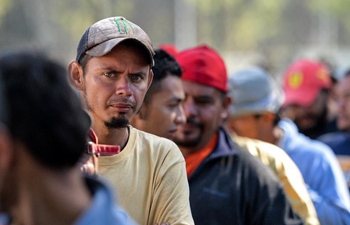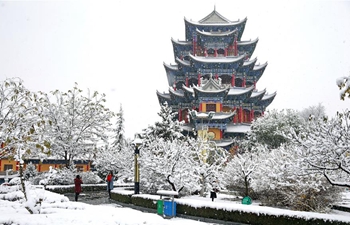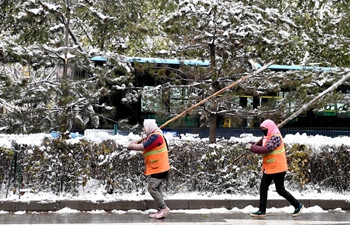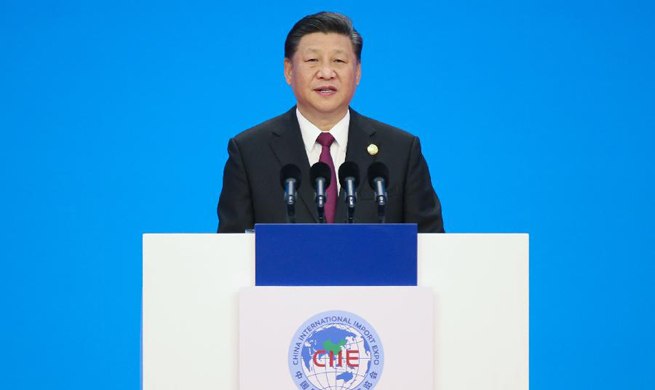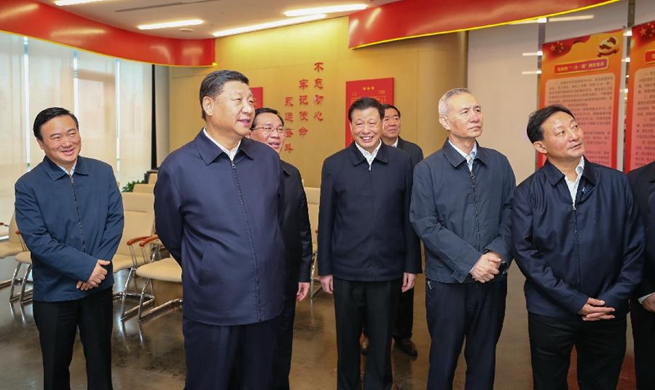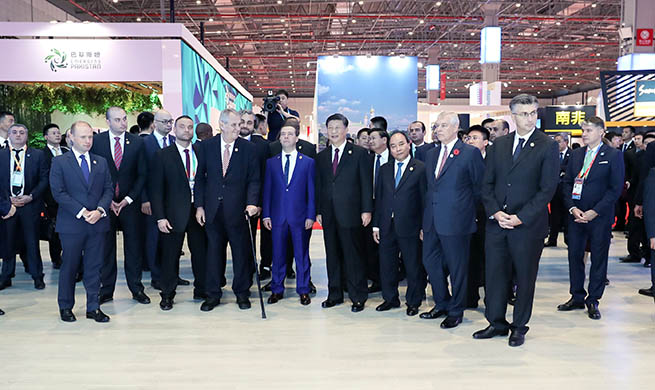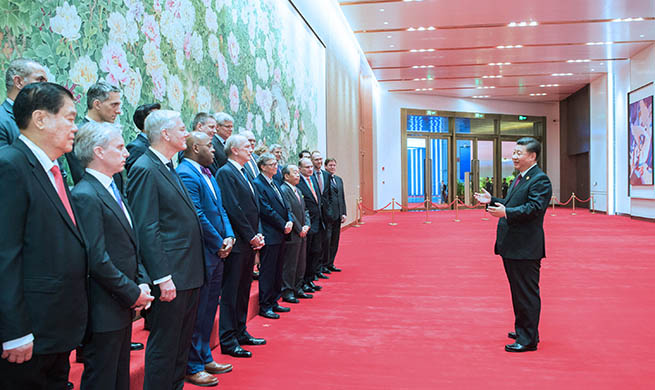TOKYO, Nov. 6 (Xinhua) -- Japan's central government and Okinawa prefecture agreed Tuesday to hold discussions for about a month on the contentious issue of the relocation of a U.S. military base within Japan's southernmost prefecture of Okinawa.
The talks held in Tokyo between Okinawa Gov. Denny Tamaki and Japan's top government spokesperson Chief Cabinet Secretary Yoshihide Suga come at a time of mounting friction between the central government and Okinawa.
Under a 1996 pact made between Japan and the United States to relocate the U.S. Marine Corps Air Station Futenma, the central government later decided the base should be moved from the crowded residential district of Ginowan to the less populated coastal area of Henoko in Nago, also on Okinawa island.
Amid growing anti-U.S. sentiment on the tiny subtropical island and following Tamaki being elected as governor in September's gubernatorial election on a platform of opposing the base's relocation and lessening Okinawa's base-hosting burdens, Tamaki has been pushing to resolve the issue through dialogue with the central government.
The central government, however, despite Tamaki's push for face-to-face talks, has forged ahead unilaterally with land reclamation work necessary to build the new base after the land ministry issued an injunction to suspend Okinawa from revoking a permit for the landfill work.
Tamaki had previously said that the central government's persistent push to continue with the landfill work is completely unacceptable and against the will of Okinawans who wish to see the base moved outside of Okinawa and Japan altogether.
He said the central government's move "tramples on the will of voters shown in the Okinawa gubernatorial election" and is "totally unacceptable."
Tamaki became Okinawa governor on Oct. 4 following the death of his predecessor Governor Takeshi Onaga who had been urging the central government to reduce Okinawa's disproportionate base-hosting burdens.
Prior to his death, Onaga revoked a landfill permit necessary for the construction of the new base and Tamaki has said that he was trusted by Onaga, himself a staunch opponent to the base move, before his death, to uphold his wishes and those of the people of Okinawa and continue to block the central government's plans to move the base.
While the central government's stance on the relocation issue appears to be unwavering, Tamaki has intimated that he may petition Washington over the deal as it runs contrary to the will of the people of Okinawa.
As the central government purportedly continues to "try and gain the understanding of the people of Okinawa" over the base transfer move, Japan's Defense Minister Takeshi Iwaya told a press briefing Tuesday that he intends to meet Tamaki to hold discussions in Okinawa, possibly as soon as this week.
Iwaya said he wants to explain to Tamaki the current dangers posed by the existing Futenma facility and the central government's plans to return the land currently used by the base to Okinawa.
The return of the land used by the Futenma base, only for a new base to be built on the island, according to local officials and citizens, amounts to a zero sum game and does nothing to lighten Okinawa's base-hosting burdens.
Tamaki said recently the prefectural government will study the decision of the land ministry's issuing of an injunction to resume the land reclamation work, and may move to apply for screening by the Central and Local Government Dispute Management Council, which operates under the auspices of Japan's Internal Affairs Ministry.
Okinawa hosts the vast majority of Japan's U.S. bases, yet the island accounts for just a fraction of Japan's total land mass.
Instances of violent crimes, including murder and rape by U.S. military-linked personnel along with a near constant string of U.S. military related accidents, particularly those involving aircraft, has led to rising anti-U.S. sentiment on the island.
Calls are becoming more vociferous from Okinawans for its postwar occupation by U.S. forces to be completely ended, as, legally, Okinawa's control under the U.S. ended in 1972.
Following his meeting with Suga on Tuesday, Tamaki told a press briefing that dialogue in the near future will be headed by Deputy Okinawa Gov. Kiichiro Jahana and Deputy Chief Cabinet Secretary Kazuhiro Sugita.
Suga and Tamaki confirmed that the two sides will make contact "as soon as tomorrow," Tamaki said.
